Do you know all Satelits
Today I found a cool tool to monitor all the 22505 bigger objects flying around our planet. Yes, there are so much and it is even getting more. Have a read and start thinking about all this.
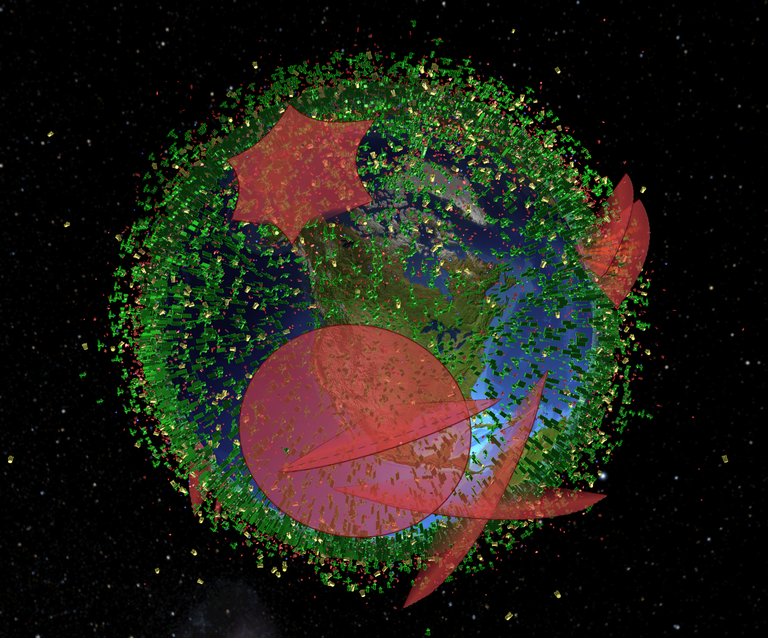
Pic by leolabs.space
Enjoy this by yourself whenever you play with this cool tool from LEOLABS
https://platform.leolabs.space/visualizations/leo
Hey Hive Family
and let us travel the world again
What is LeoLabs?
LeoLabs, founded in 2016, specializes in tracking and monitoring objects in "low Earth orbit" aka LEO.
Utilizing a global network of phased-array radars, the company provides real-time data on satellites and space debris, enhancing space situational awareness for various stakeholders.
See a nice video by Bloomberg explaining all this by 2022
A Global Radar Network
LeoLabs operates seven radar sites worldwide, including locations in Alaska, Texas, New Zealand, Costa Rica, the Azores, Western Australia, and a recently established site in Arizona. These radars deliver comprehensive coverage of LEO, tracking thousands of objects daily.
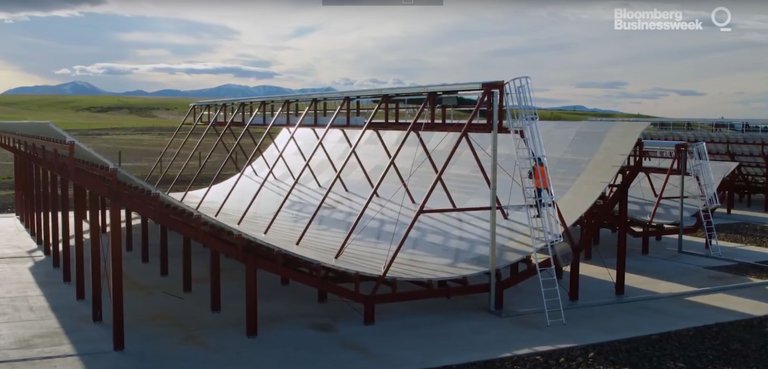
Pic by Bloomberg Businessnetwork
More time to play "Use fliters"
There are some powerfull filter functions to see as well all the "rubbish" out there
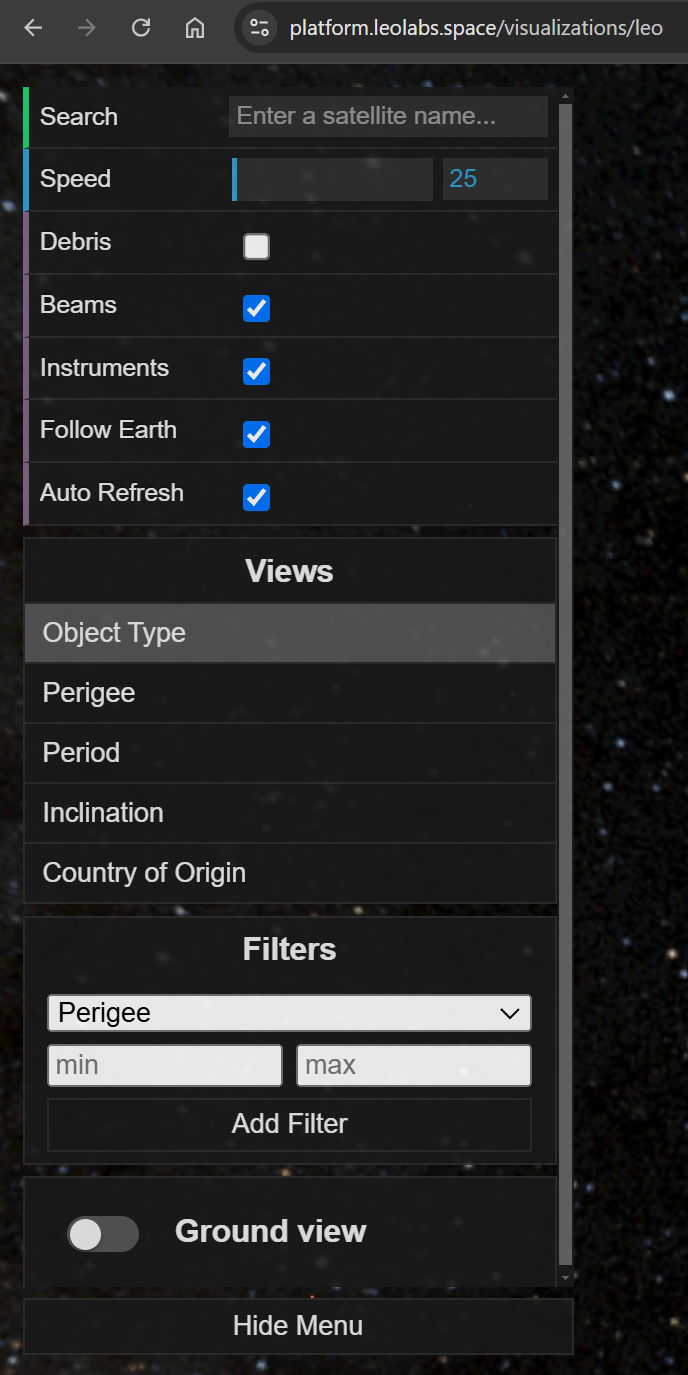
Pic by leolabs.space
Debris
This is to unreal. Switch on DEBRIS
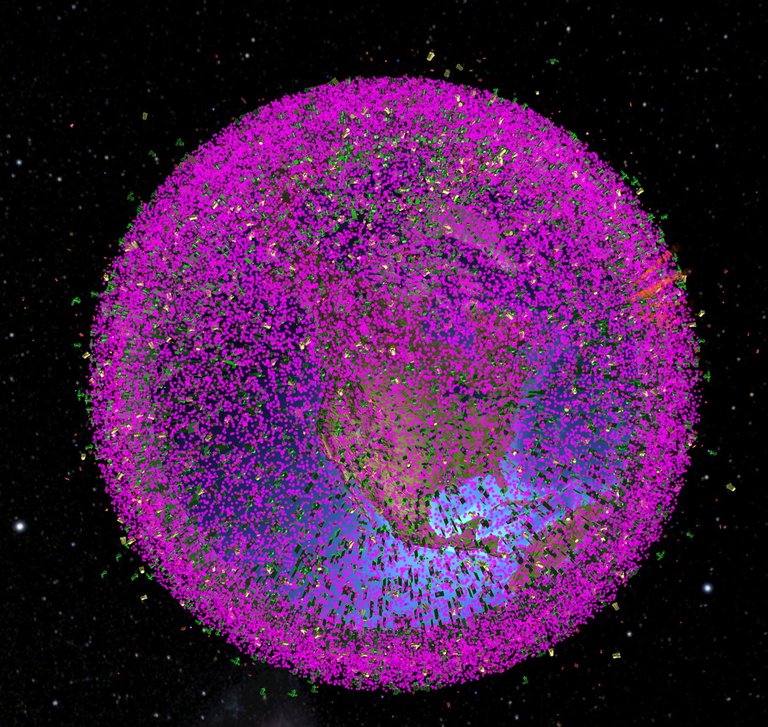
Pic by leolabs.space
Debris flying around Earth refers to the accumulation of space junk in orbit.
This debris includes fragments from defunct satellites, spent rocket stages, and other discarded spacecraft parts. These objects, ranging from paint flecks to decommissioned satellites, travel at speeds up to 28,000 km/h (17,500 mph), posing risks to operational satellites, space missions, and even the International Space Station (ISS).
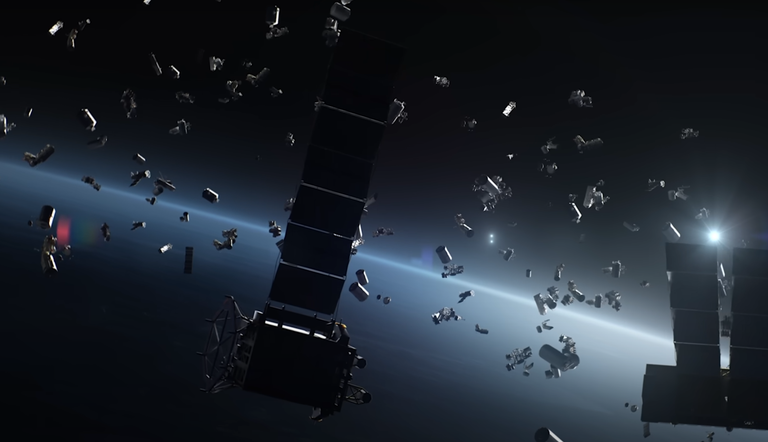
Pic by Bloomberg Businessnetwork
This orbital debris creates challenges for collision avoidance and satellite functionality, requiring constant monitoring by organizations like NASA and ESA. The growing space economy amplifies concerns about debris management, highlighting the importance of sustainable practices in space exploration.
Who is the owner
Event better, if you switch to "Country of Origin" you see who owns all the stuff flying around.
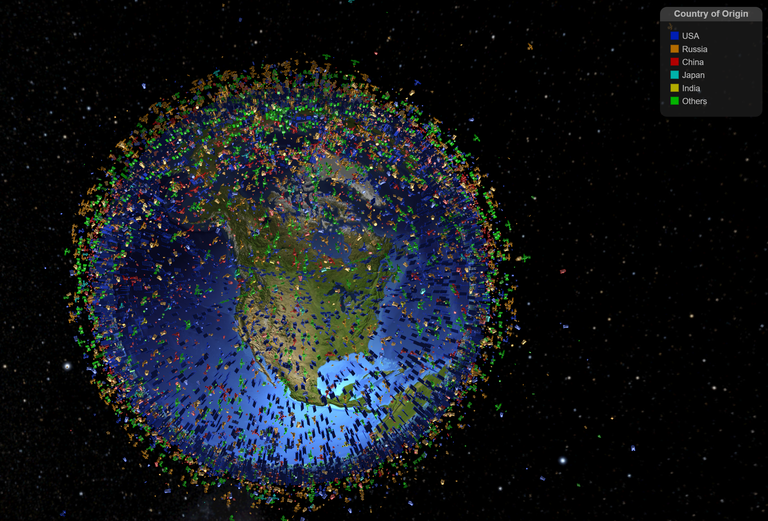
Pic by leolabs.space
Give it a play
and learn whats going on above us
https://platform.leolabs.space/visualizations/leo
Have a great day everybody
and let us travel the world again

pic by @detlev
Enjoy the #BeerSaturday
have 3 pics and a story
around beer - and go!

@Detlev loves HIVE
Thanks for your contribution to the STEMsocial community. Feel free to join us on discord to get to know the rest of us!
Please consider delegating to the @stemsocial account (85% of the curation rewards are returned).
You may also include @stemsocial as a beneficiary of the rewards of this post to get a stronger support.
Note: not to scale
Wow I've never viewed the earth this way. I've always thought it was clean and just satellite at top of it never knew starts can be counted
This content is knowledgeable and insteresting! I am surprised! Feels like it is unsafe for the explorers to come in the area where tons of space junk is. I hope they can find solutions to eradicate those.